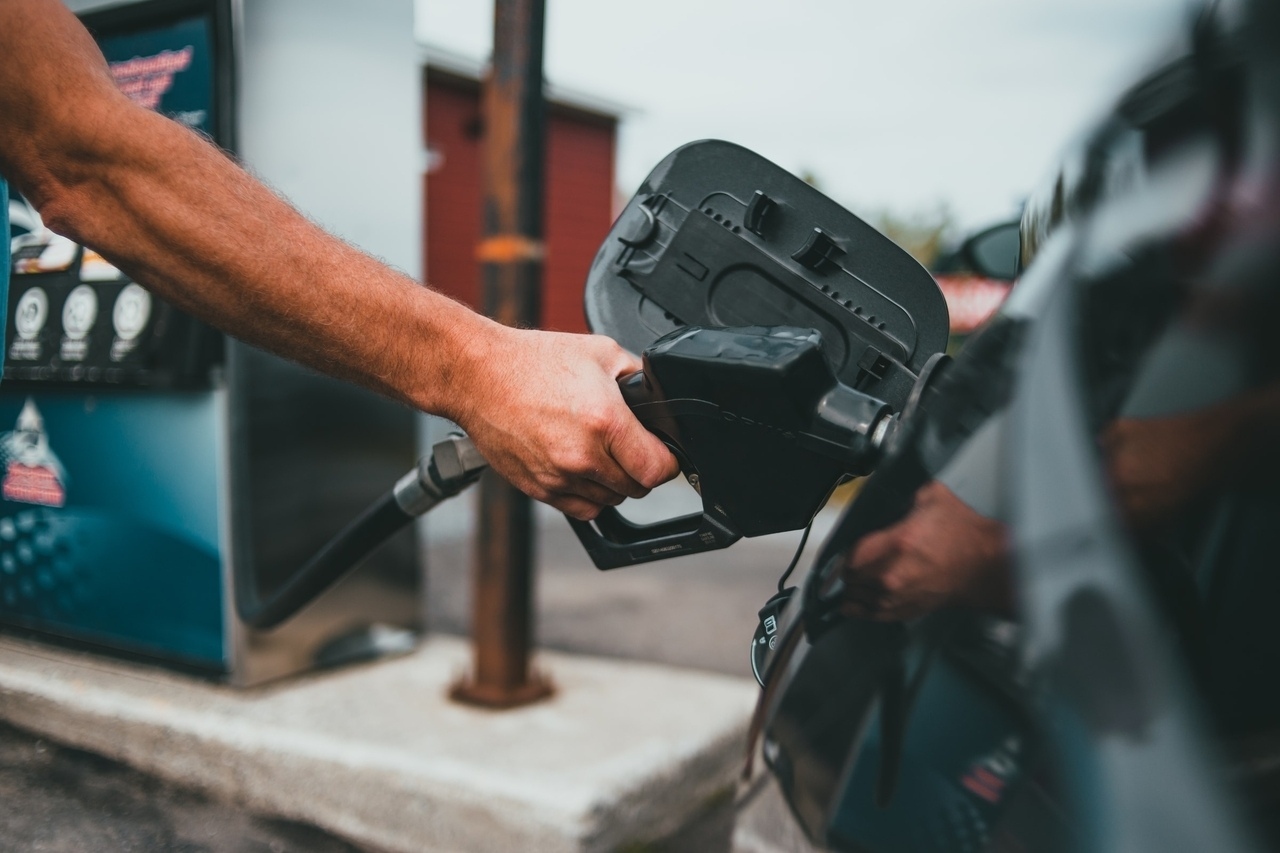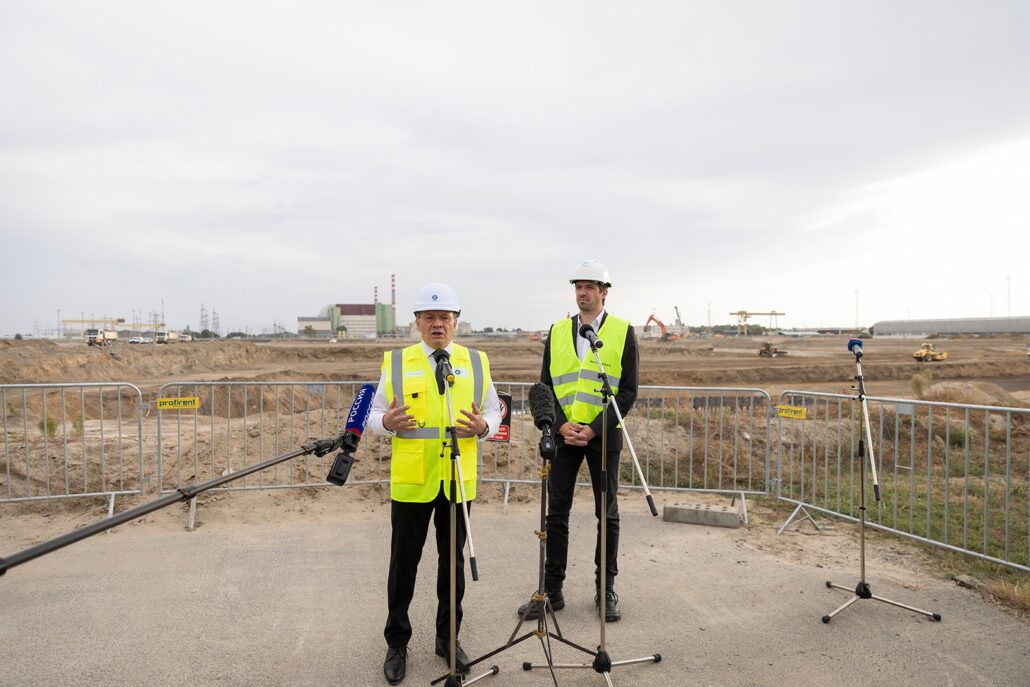With all preparatory work completed and permits obtained over the past years, there are no obstacles standing in the way of the expansion of the Paks nuclear power plant, Rosatom CEO Alexey Likhachev said at the site which he visited together with Hungarian Foreign Ministry State Secretary Levente Magyar on Friday.
At a press conference, Magyar said that the two new blocks had to be built in order to ensure Hungary’s continued energy security and sovereignty. Likhachev told the press conference that now all conditions were in place for the construction to go according to schedule. Rosatom will fulfill all its contractual obligations in the project, he said.
Paks II will be the first nuclear facility Rosatom is building in the European Union, he said, underlining that the company would use an absolutely safe technology and best practices. He said they would speed up construction which currently works with 140 Hungarian suppliers. The number of employees will continue to increase and reach around 2,000 next year, said Likhachev. Magyar said the construction was progressing well. He called the Paks II project irreversible, insisting that it would be implemented despite and attempts seeking to thwart it.
Read also:
- Hungarian government insists on Russian nuclear power: amendment to Paks contract signed – Read more HERE
- Paks nuclear power plant in trouble: it runs with reduced performance
Szijjártó: Russian FM pledged to guarantee Hungary energy supply
Russian Foreign Minister Sergei Lavrov pledged to guarantee Hungary’s energy supplies, so the delivery of gas, crude oil and nuclear fuel from Russia will be uninterrupted, Foreign Minister Péter Szijjártó said after talks with his Russian counterpart in New York on Friday. Szijjártó met Lavrov on the sidelines of the UN General Assembly session. “If other Western politicians did the same, the hope for peace in Ukraine would be greater,” he said, according to the foreign ministry’s statement.
The talks focused mainly on the war in Ukraine, and Szijjártó said he reiterated to Lavrov that Hungary had a vested interest in a swift end to the war. “I told him that we Hungarians were also losing lives in this war, and so we urge an immediate ceasefire and peace talks,” he said. “My colleague, Sergei Lavrov, also said Russia was ready for peace negotiations. There are obviously a lot of details to clarify. I do hope that at some point, circumstances will make it clear for Russia as well as for Ukraine that they have to seek the solution at the negotiating table,” Szijjártó said. Another topic of the talks was bilateral energy cooperation, he said. Lavrov said Russia would fulfil its contractual obligations, Szijjártó said.
Russia will deliver the promised amount of natural gas, crude oil and nuclear fuel by the contractual deadlines, “we can rest easy regarding Hungary’s energy supplies”, Szijjártó said. Regarding the upgrade of Hungary’s Paks nuclear plant led by Russia’s Rosatom, Szijjártó said the construction was on time for the two new blocks to be “hopefully” operational by 2030. This year, Russia has already delivered 3.3 million tonnes of crude oil and 4.2 billion cubic metres of natural gas to Hungary, he said.
The ministers said that Russia and Hungary both had an interest in maintaining the operation of the Organization for Security and Cooperation in Europe (OSCE), as the only remaining forum for East-West dialogue. Szijjártó said they also touched on the issue of new Russian textbooks. “I told Sergei Lavrov that the 1956 revolution is one of the most uplifting events of Hungarian history when Hungarians turned into heroes as they stood up for the freedom and sovereignty of their homeland … which is why branding those people fascists is unacceptable for us…”
Lavrov assured Szijjártó that the issue would be handled according to President Vladimir Putin’s latest statement, the Hungarian minister said. Szijjártó and Lavrov also discussed maintaining economic cooperation in sectors not hit by sanctions.
please make a donation here
Hot news
Top Reasons You Should Choose Hungary for Studying Abroad
10 Best Universities in Hungary for International Students
What happened today in Hungary? – 7 May, 2024
Good news about road closures around Budapest Airport
Chinese President Xi Jinping will arrive in Budapest soon, these will be the main topics of his visit
Hungarian-Uzbek business forum: 29 business leaders arrived in Tashkent as part of the Hungarian delegation





2 Comments
Only a fool relies on a “guarantee of energy security” from the Russian government.
1994 Budapest memorandum guarantied Ukraine sovereignty . So much for Russian guaranty.
Following the collapse of the Soviet Union in 1991, Ukraine inherited the world’s third-largest nuclear arsenal. Belarus and Kazakhstan were also left with nuclear weapons. The prospect of having three nuclear Eastern European states unsettled many international leaders, and as a result, the West pursued a nuclear non-proliferation agreement with them.
Representatives from Belarus, Kazakhstan, Ukraine, Russia, the United States, and the United Kingdom met in Budapest in December 1994 to discuss the Soviet Union’s nuclear arsenal. During the summit, the US, UK, and Russia welcomed Belarus, Kazakhstan, and Ukraine as parties of the Treaty on the Non-Proliferation of Nuclear Weapons.
They also stated that they would guarantee the sovereignty and territorial integrity of Belarus, Kazakhstan, and Ukraine. Finally, the US, UK, and Russia stated they would refrain from using force against these newly independent states.